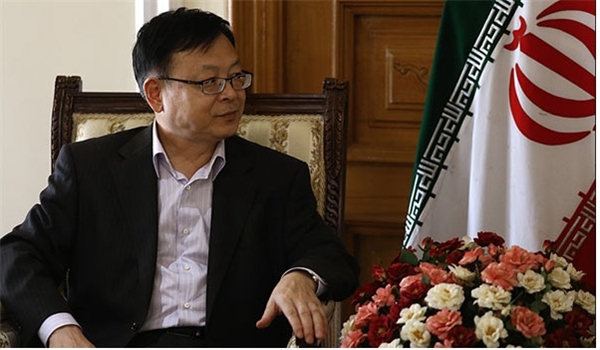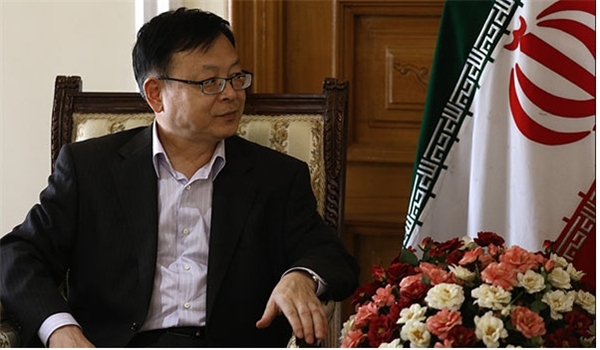[caption id="attachment_154485" align="alignright" width="223"]
 China's ambassador to Tehran Pang Sen[/caption]
China's ambassador to Tehran Pang Sen[/caption]TEHRAN (FNA)- China's Ambassador to Tehran Pang Sen said on Sunday that Beijing is determined to expand its investment partnership in Iran, particularly in the country's metal industry.
Speaking in a meeting with Managing Director of the Iranian Mines and Mining Industries Development and Renovation Organization (IMIDRO) Mehdi Karbasian, the Chinese diplomat said that his country would facilitate investment of banks in Iran's projects, including in the steel industry.
He further added that Iran and China have good potentials for cooperation and Beijing attaches great importance to Iran's role in the region.
Iran and China are discussing investment in various steel projects in Sepid-Dasht, Neyriz, Qaenat, Sabzevar, Shadgan, Miyaneh and Baft .
In February, Deputy Head of Iran-China Joint Chamber of Commerce Majid Reza Hariri announced that the trade exchange between Iran and China has increased by 30 percent.
�Iran�s trading with China has risen by 30 percent, and their economic transactions have reached $50bln. Off course, it is possible to witness further increase in bilateral economic transactions,� Hariri said.
The Iranian official noted that Iran is importing service goods for road, power plant, petrochemicals, machinery, locomotive and wagon. China is buying Iranian gas condensations, petrochemicals, minerals, iron ore and decorative stones.
Iran�s exports to China include 30 percent of the country�s entire exports. China is buying half of Iranian oil while Iran is under western sanctions.
The official also said pistachio, carpet, saffron and date are among other Iranian goods which have appropriate market in China.
According to the report, China's exports in 2014 amounted to $22bln which enjoyed a growth of 87 percent compared to the previous year, which was $11.7bln.
Meanwhile, China's import from Iran in 2014 rose reportedly 10% and reached $25.5bln from $23.1bln in 2013.
Iran is currently China's third largest supplier of crude, providing Beijing with roughly 12 percent of its total annual oil consumption.
By Fars News Agency











